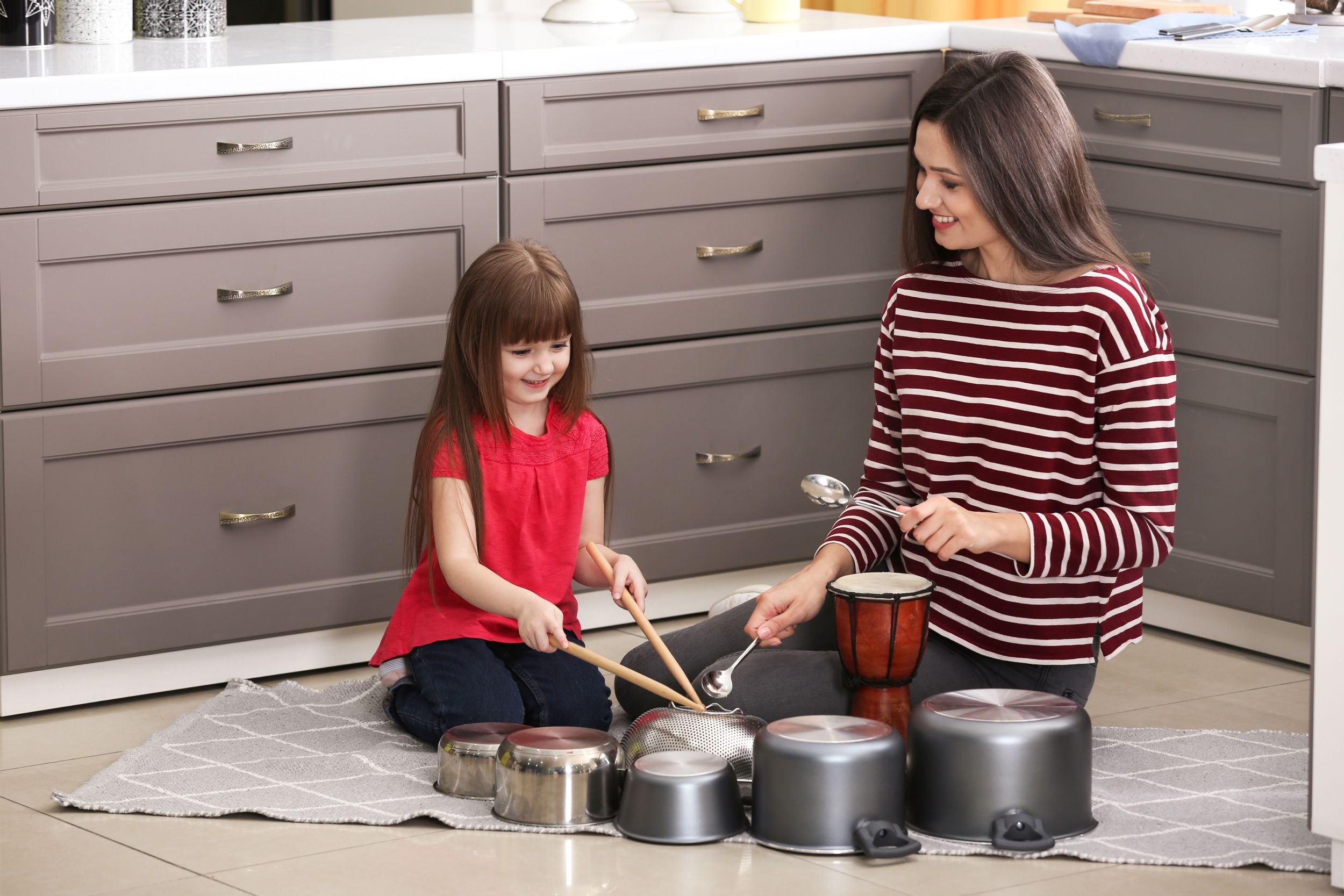
The Children's Trust understands the importance of the arts for all children, which is why music is one of the many Trust-funded arts and culture experiences supported to enrich the lives of children across Miami-Dade County. But even when children are not in an after-school program, there are still some simple ways to help your child foster creativity, improve communication skills, and affect brain plasticity by making music at home together (even if you've never played an instrument before).
Make instruments at home
Musical instruments can be expensive, and you might not know which one is the right fit before you splash the cash. Creating your own from household objects is just as good for expression and development when you're just starting. Make a simple drum kit by flipping pots and pans over (use plastic ones to make less noise) and using chopsticks instead of drumsticks, experimenting by hitting different parts of each object. For a homemade maraca, seal one end of an old paper towel roll, fill it halfway with rice, then seal the other end and start to shake. Fancy a stringed instrument? Turn an old tissue box into a guitar's body, stretch different sizes of elastic bands over the box, start plucking away, and notice the different tones. Or, cut thick plastic straws at various lengths, tape them together to create a makeshift pan flute, and listen to the different pitches from each straw.
Turn music into a game
According to a 2021 systematic review, "using music in the education of 3–12 year olds can have a positive effect on their emotional development. We first found that it can contribute to the development of emotional intelligence, especially with regard to emotional perception, expression, and regulation."
While free play on homemade instruments fosters creativity, adapting music play with simple games provides a focus for your child. Ask questions about the sounds, such as "What will using a paintbrush instead of a chopstick do to the sound on this pan?" or "Which drum is the loudest?" Play musical statues by taking turns to play an instrument, then have other family members dance. When the musician stops playing, everybody else has to freeze in place.
You don't even need instruments to make music together. Sit in a circle with your family, and start a beat with your hands by clapping or clicking your fingers. The next person in the circle follows the same beat. Add an extra sound whenever you go around the circle to make it more complex. Then, try it again with your homemade instruments if you have them.
More music in Miami-Dade
According to a 2022 study, "Music education has a significant positive impact on psychological well-being, which improves students' academic performance." The Children's Trust is proud to fund exciting music programs in Miami-Dade County, including music camps and after-school programs offered by the Miami Music Project, Inc. It also supports Young Musicians Unite, Inc., who believe every child deserves access to music education regardless of their socio-economic background, working with schools to provide free music education. For more after-school options that include music activities, visit TheChildrensTrust.org/FindAProgram, click on “Find Programs,” and check the “After-School” category to see available opportunities near you.